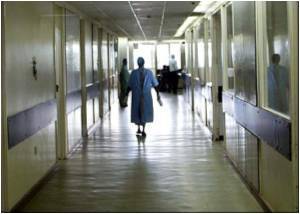
In 2011, the Institute of Medicine (IOM) issued a report titled "The Health of Lesbian, Gay, Bisexual and Transgender People: Building a Foundation for Better Understanding," in which it identified this community as medically underserved. Jabson and colleagues studied the representation of the lesbian, gay and bisexual community in cancer clinical trials to add to existing knowledge about their experience with cancer and their participation in the clinical trial system.
The researchers used data from the Behavioral Risk Factor Surveillance System and an optional module that assesses cancer survivor participation in cancer clinical trials. They collected data from five states - Massachusetts, New Mexico, Wisconsin, Alaska and California - that used this module and an item asking self-identified lesbian, gay and bisexual status. The total population was 4,339 people.
"We thought there would be an under-representation of lesbian, gay and bisexual individuals in the data," Jabson said. "We only found one prior paper that had been published in the last 10 years on the topic, and it found that individuals in this community were more often excluded in all clinical trials, not just those specific to cancer."
However, the results of this study indicated that 12.5 percent of the cancer survivor population that self-identified as being lesbian, gay and bisexual participated in clinical trials compared with 6 percent of the heterosexual cancer survivor population. When adjusting the data to account for participants'' age, sex, education, race/ethnicity and survey location, cancer survivors from the lesbian, gay and bisexual community were more than twice as likely to report participation in a clinical trial.
Jabson said it is difficult to infer an explanation for these findings.
"We need to replicate our findings in a larger and more comprehensive sample to explore some of the causal or explanatory variables and to make sure that the result was not an artifact of the sample," she said. "In addition, we agree with the IOM report that sexual orientation should be collected as a demographic variable in population-based health surveillance systems and cancer registries."
Additional studies are warranted to explain the greater representation of individuals who self-identify as lesbian, gay and bisexual in cancer survivor clinical trials and potentially to identify ways to prevent and treat cancer in this community, according to Jabson.
Source-Newswise














